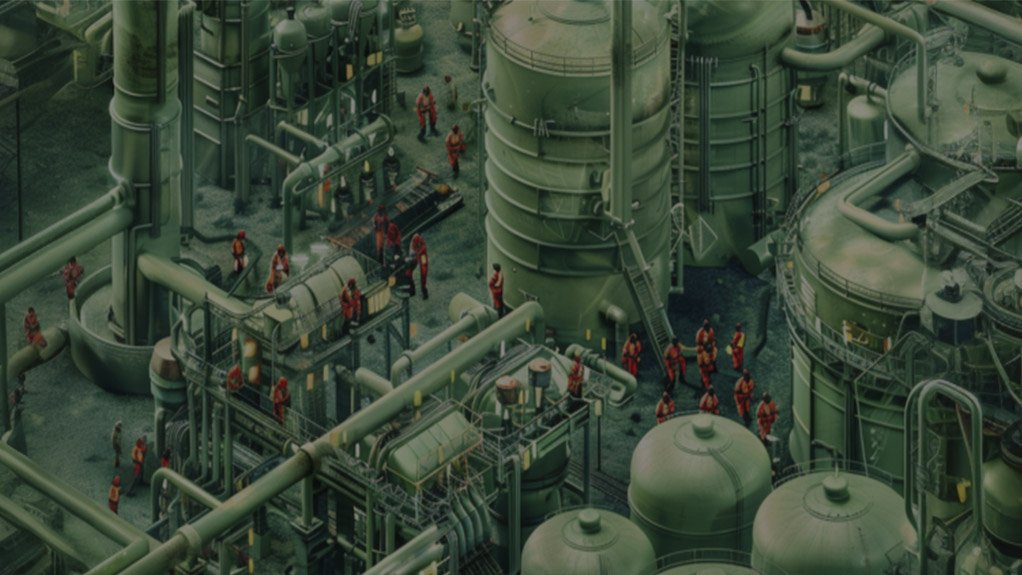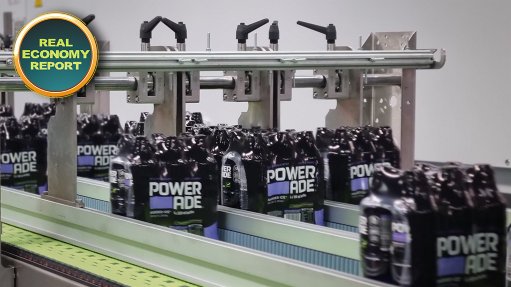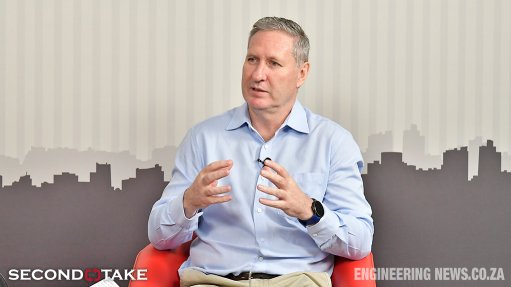AltGen’s Fireside Chats: Finding Skills at Scale for Green Hydrogen: Crucial Skills, Lean Teams, and AI at Scale
This article has been supplied.
Series 3 of 4
For our third Fireside Chat, we will be discussing the obstacle that scale poses to the development of green hydrogen projects. When we think of scale, particularly when it comes to renewable energy projects, the industry likes to think big. Scaling up on both skills and knowledge is crucial to the success of green hydrogen projects which are undoubtedly going to require many skills at varying levels, but there certainly is not a one-size-fits-all when it comes to building teams…
We spoke to developers and project experts, who in collaboration with their partners, currently have green hydrogen projects underway. This time, however, we also spoke to professionals involved in creating innovative new ways to share knowledge at scale using AI technology. We will continue to explore the use of AI in the energy industry in our fourth and final green hydrogen-focused Fireside Chat.
AltGen’s Burning Questions
- What really is the biggest barrier facing Africa’s green hydrogen economy? (We touched on this question in our first Fireside Chat, click here to read more!)
- Realistically, how long will it take Africa to fully develop and begin producing green hydrogen?
- Will carbon taxes cause destructive delays in Africa’s green hydrogen transition, or will they propel them forward? (We touched on this question in our second Fireside Chat, click here to read more!)
Continuing the conversation from our last article, our panellists include WKN Windcurrent’s Power-to-X Programme Manager, Akhil Woodraj, Green Hydrogen Independent Consultant Olaf Marting, and a warm welcome to a new panellist - Dylan Evans, Co-founder of Beeline.
Top challenges shortlisted by our Panellists
Today we’ll be tackling the third challenge...Finding Skills at Scale. This Fireside Chat is the third in a series of four on the feasibility of green hydrogen projects in Africa.
1. Communication
2. Policy and Legislation
3. Finding Skills at Scale
4. Overload of Information
Finding Skills at Scale: Number Crunching
There are several scale-related factors that come into play when we talk about renewable energy projects. All, however, can be connected back to financial viability. The economic viability of green hydrogen projects lies primarily in the cost of equipment, storage, and distribution. While engineers and creatives rush to develop ways to make the price of low-carbon hydrogen technology more competitive, the rest of the industry must focus on scaling up.
“Economies of scale pose a cost benefit to green hydrogen projects due to the complex scope that often includes infrastructure, renewable energy and equipment
Akhil Woodraj, Power-to-X Programme Manager - WKN Windcurrent
Possible Solutions as outlined by our Panellists:
1. A proper look at skills needs assessments at all levels of employment
“In addition to engineering qualifications, vocational skills are also a necessity for green hydrogen project to be successful.”
Akhil Woodraj, Power-to-X Programme Manager - WKN Windcurrent
“Most of the skills are available, it’s the experience that’s lacking, that’s where the risk sits.”
Olaf Marting, Green Hydrogen Independent Consultant
Although green hydrogen projects will of course require highly specialised engineering, legal, and finance skills, they will also need experienced welders, boilermakers, electricians, maintenance staff, and amongst others, highly organised administrators. These skills are already available at scale, however, very few of them have experience with hydrogen projects.
To adequately prepare for the large number of skills that these projects will require, governments and independent organisations have begun rolling out skills maps to identify which skill areas will need to be upskilled and re-skilled. UNIDO has mapped over 60 different skills that will need to be adapted, 40 of which are identified as technical skills that will be required across the entire value chain of the project. The focus, however, appears to initially be on the more glamourous skills. It’s all well and good having an electrolyser that produces green hydrogen, but without staff to maintain the primary plant, accidents are bound to happen.
Neglecting crucial elements of hydrogen projects because of a perceived lack of importance is likely to land a project in trouble, but when the end goal is so glittery, one can understand the outbreak of “get-there-itis” in the industry.
2. Moving away from a ‘not seeing the wood for the trees’ kind of perspective
Get-there-itis is a relatively well-known phenomenon in the aviation industry. It refers to a pilot’s determination to reach a destination despite dangerous weather conditions, deemed as “plan continuation bias”. When of sound body and mind, it’s safe to assume that most people would opt not to fly an aeroplane during a tropical storm for example. However, when one becomes fixated on the destination or end objective, it’s easy to lose sight of a need to amend the plan or in worst-case scenarios, abandon the plan altogether.
So, how do we innovate quickly enough to avoid a climate catastrophe whilst still going slow enough that we avoid making irreparable mistakes? The answer might lie in something as simple as changing the way that we use and share data and knowledge.
“Traditionally, organisations have focused on proactive learning, rather than reactive learning. But now, people need to know a lot more, and a lot quicker, learning on the go is a must.”
Dylan, Co-Founder - Beeline
In order for experienced skills to be deployed at scale, skills naturally need to be trained at scale.
Companies like Beeline, a science-based knowledge and learning platform, offer a way to optimise the transfer of real-time knowledge within companies and between partners. Organisations can curate digital libraries, providing instant access to data and knowledge at a company or industry-wide level. In addition to this, the platform has an integrated AI tool which allows users to search in this library for answers to specific questions.
The use of AI technology as both a scaling and data-cleaning tool is becoming a more viable solution across the board, particularly when huge amounts of data need to be sifted through, analysed, and shared. AI software is already being used to optimise processes in the green hydrogen industry and has generated impressive results. Some of these results include improved recipes for the chemical makeup of green hydrogen, more efficient and safer designs of plants, and ways to effectively scale up the manufacturing of electrolysers. These somewhat out-of-this-world developments bring a well-known quote by Jeff Bezos comes to mind.
“AI is a ‘golden age’ and solving problems that were once in the realm of sci-fi”
Jeff Bezos
One would expect new skills to arise from the development of new AI software, pulling green hydrogen projects to safety with their shiny computing brains. This, however, does not seem to be the case. AI is virtually part of the furniture for most industries, with new programmes no longer needing specialised skills to operate them. All you need to know really, is how to effectively manipulate the data or use the system.
With the use of new AI tools then, perhaps the scaling up of skills required for green hydrogen projects will not be as complicated as we may think…
The challenges that green hydrogen projects face come with a considerable amount of data attached to them, data which continues to accumulate daily. With an avalanche of information hurtling towards them, decision-makers in the green hydrogen space have to make the right choice quickly. If we are looking for a more efficient, more effective way to scale up green hydrogen skills, lean teams might be the way to go.
3. Lean, mean, development machines
The tension between lean teams of developers and the skills at scale required to construct, operate, and maintain green hydrogen projects is an interesting one. More intimate teams can allow for more effective and more innovative collaboration. They make room for the wilder and somewhat unconventional ideas and solutions that, in a traditional corporate structure, are likely to get lost amongst the noise of a long chain of command and tangle of red tape.
“The first people to take up things, the outliers, the few that see the world differently, they are the creators of the solutions that will transform our current reality. They need a strong voice to stand up and advocate for them, one louder than the naysayers.”
Priscilla Gibson, Managing Director – AltGen United Kingdom
Although these lean teams of experts are precisely what green hydrogen projects need, the ideas that they generate often disappear in the face of corporate marketing budgets and crowds of nay-sayers. Did you know that the first practical electric vehicle was built by Robert Davidson in 1837? Or that battery-operated buses were being used in Paris in 1881? Or that green hydrogen has had 3 waves of enthusiasm, first in the mid 1970’s, then the late 1990’s and now – the 2020’s. The question is, how many lessons have been learnt and transferred between the waves of enthusiasm, or are the nay-sayers harping on the same strings from the previous conversations?
Leaders in green hydrogen need to be ready to step in to encourage and defend a solution if necessary. For that to occur, they need to ensure that they have their finger on the pulse at all times.
Final thoughts…
“The industry is tough; it is not a friendly industry. But show me one industry that is not tough. What’s important is that we continue to believe in the change that these projects will bring”
Olaf Marting, Green Hydrogen Independent Consultant
Bringing each element of these ambitious green hydrogen projects together is going to take time, collaboration, and considerable patience. When it comes to skills at scale, the challenge lies not in finding them, but perhaps in developing them in parallel with the projects themselves.
They say that the toughest challenges bring the greatest rewards, particularly when they are tackled with curiosity. Understanding the world of green hydrogen often feels like what one would imagine navigating rough Daedalus’s labyrinth would feel like. At every twist and turn, the industry learns something new (or re-learns from lessons learnt), and we take one step closer to seeing green hydrogen projects become a reality, but we need to work together as a collective, to succeed.
Comments
Press Office
Announcements
What's On
Subscribe to improve your user experience...
Option 1 (equivalent of R125 a month):
Receive a weekly copy of Creamer Media's Engineering News & Mining Weekly magazine
(print copy for those in South Africa and e-magazine for those outside of South Africa)
Receive daily email newsletters
Access to full search results
Access archive of magazine back copies
Access to Projects in Progress
Access to ONE Research Report of your choice in PDF format
Option 2 (equivalent of R375 a month):
All benefits from Option 1
PLUS
Access to Creamer Media's Research Channel Africa for ALL Research Reports, in PDF format, on various industrial and mining sectors
including Electricity; Water; Energy Transition; Hydrogen; Roads, Rail and Ports; Coal; Gold; Platinum; Battery Metals; etc.
Already a subscriber?
Forgotten your password?
Receive weekly copy of Creamer Media's Engineering News & Mining Weekly magazine (print copy for those in South Africa and e-magazine for those outside of South Africa)
➕
Recieve daily email newsletters
➕
Access to full search results
➕
Access archive of magazine back copies
➕
Access to Projects in Progress
➕
Access to ONE Research Report of your choice in PDF format
RESEARCH CHANNEL AFRICA
R4500 (equivalent of R375 a month)
SUBSCRIBEAll benefits from Option 1
➕
Access to Creamer Media's Research Channel Africa for ALL Research Reports on various industrial and mining sectors, in PDF format, including on:
Electricity
➕
Water
➕
Energy Transition
➕
Hydrogen
➕
Roads, Rail and Ports
➕
Coal
➕
Gold
➕
Platinum
➕
Battery Metals
➕
etc.
Receive all benefits from Option 1 or Option 2 delivered to numerous people at your company
➕
Multiple User names and Passwords for simultaneous log-ins
➕
Intranet integration access to all in your organisation





















